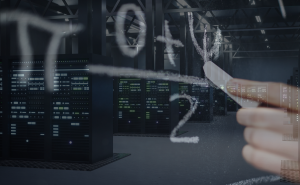Busting Bliss: Invisible Disabilities
Disabilities, deservedly, get a fair amount of attention, but what about invisible ones?
People with invisible disabilities are often questioned about the legitimacy of their condition.
April 20, 2021
They say it’s easier to speak from experience — to talk about situations that pertain to you — and sometimes they say that’s all you should do. 2020, and even these few months of 2021 have shown us that it is increasingly important to share your experiences with your community. There’s a greater level of understanding and visibility for so many people now because of it, but like a lot of things in America, it gets misconstrued and taken too far.
From the Black Lives Matter movement to the growing awareness for Asian-American struggles, there’s been a lot of social issues coming to light, but in tandem comes the expectation that marginalized groups of people should only talk about the ways in which they’ve been marginalized.
Generally, privileged people tend to expect the people they’ve oppressed to explain their oppression to them. When people of privilege are put in uncomfortable situations, they listen enough to make the issue go away, and a lot of the time, put in no more effort than that.
But I tend to find that the common denominator in most of these situations is that we can actually see proof of these people’s struggles— we see the protests, the videos of the violence, and we see the constant mistreatment of these people by the systems that claim to support them. It’s the sight of the violence that inclines privileged people to listen, it seems, just to get these issues off of their social media pages.

But when there are issues and struggles that we can’t see, that we turn a “deaf ear” to— so to speak— then we choose not to address it. If it’s not influencing the amount of Kardashian-Jenner content on someone’s instagram feed, then why should they care? Which brings me to the point I’d like to make: people with invisible struggles are forced to talk about them, but when they do, no one listens.
I live with Post Traumatic Stress Disorder (PTSD), which is classified in many places as a disability. It’s not easy— besides the glaring fact PTSD is not easy to live with in the first place, but because when I have to advocate for myself, people usually try not to listen. People don’t want to listen for a lot of reasons, but they listen even less-so when they don’t have to look at the problem you’re trying to solve. People can’t see my PTSD in the way they think a disability should present itself, and thus they brush it under the rug and stomp on it a few times to make sure the issue is “resolved”.
There’s a stigma when it comes to people who are or appear disabled, or live with conditions that society isn’t built to accommodate, and sadly it takes one cursory glance at a person for most people to write them off as disabled, even if they aren’t.
People in wheelchairs get sideways glances, people with Down Syndrome barely get looked at at all, and if someone with Tourette Syndrome tics in public, they’re immediately written off as a nuisance by most. It’s not just disabilities in general, but anything that—one, makes people’s lives harder, and two, is uncomfortable for everyone else to look at.
It’s hard to feel seen when people don’t even want to look at you, and even harder to advocate for yourself and your community when people wish you would just go away. But unfortunately, the nature of our world demands that we speak up for ourselves, even when people don’t want to listen, otherwise we run the risk of being left behind and forgotten as the world moves forward.
I am not physically disabled, nor do I appear to be, so I can’t speak for the unique set of challenges that come with that particular territory. I’m certain there are hurdles to conquer and hoops to jump through when it comes to advocacy and accommodation for people who are forced to wear their societal disadvantages on their sleeves, and I’m sure I can’t fathom just how many there are. What I can do though, is speak from my experiences, and say— again, with certainty— that having invisible disabilities creates an entirely different daily struggle.
I’ve spent roughly the last month fighting for housing accommodations for my first semester of college, and the one lesson that has become abundantly clear is that people would simply rather hear anything else.
Because PTSD is classified as a disability, but also– and more commonly known–as a mental health disorder, when I started my quest for an opportunity at equitable education, I was constantly made to “prove” I had a disability at all. My several diagnoses weren’t enough, I had to schedule appointments with doctors just to get confirmation about something I already knew, and suddenly I was forced to share every difficult detail that my superiors thought themselves fit to know– all just to be put on the same playing field as everyone else.
I look just like everyone who lives without a disability, so why should anyone believe me when I say I’m different? It, unsurprisingly, is an issue for nearly everyone living with an invisible disability.
It’s estimated that there are millions of Americans living with these kinds of disabilities. And the issues don’t stop at simply fighting for collegiate accommodations. It extends into the workplace, and in an article by NPR, Joyce Smithey, a lawyer who specializes in labor and employment said that often when people with these hidden disabilities ask for workplace accommodations, they are told no.
“That person is not asking to partake of a benefit that’s offered in a policy; that person is asking for an accommodation they’re entitled to under the law,” Smithey said, as quoted in the article.
But even the law is not designed to help people with disabilities. A quick google search of “disability minimum wage” will pull up countless articles on subminimum wage, a legal excuse companies and businesses can use to pay disabled employees below the federal minimum wage, which is already abysmally low as it is.
This is one of the many reasons why people with invisible disabilities are much less likely to talk about them, and for good reason too. Besides the fact that declaring a disability opens the door for employers to exploit their disabled workers, talking about them can mean taking on a barrage of insulting comments and harassment.
Invisible disabilities, quite obviously, exist in people who appear able-bodied. But they aren’t, so when someone sees a person stand up out of their car in a handicap spot with no crutch or wheelchair in sight, or get extra time to finish tests or assignments, or even just need to sit down when everyone else is standing, the person with the disability is often subjected to harassment and demanded to explain their situation just to avoid having to continue the conversation.
This is not to say that this mindset is entirely bad– able-bodied people are constantly taking up the spaces and resources meant for disabled people: handicap bathroom stalls, handicap parking spots, that extra time on a test, or the last empty seat on the bus. It makes sense that a few able-bodied people would want to take up the vigilante role and scold people who abuse disabled resources, but– as I said– most things in America get misconstrued and taken too far.
Situations like these, and the school/workplace scenarios make people with hidden disabilities less likely to talk about them, but there’s also the emotional drain of having to deal with situations where those able-bodied vigilantes might be right.
Able-bodied people are constantly doing more than just taking up the few physical resources offered to disabled people. Just the other day I saw a peer talk about “finessing” their college to receive disabled room accomodations, specifically a private room with an ensuite bathroom. I don’t think anyone would turn down having a space all to themselves, but these resources exist for a reason, and when able-bodied people feel entitled to them, it takes away from the people who actually need them.
My hope is that with the rising awareness for disabilities as a whole on platforms like TikTok and Instagram, that more people will be more understanding and respectful when it comes to the spaces that are designed for disabled people. This rising awareness, however, also brings on the mindset that disabled people should talk about their disabilities.
No one should have to talk about anything they’re not comfortable talking about, especially not when it’s demanded of them for the sole purpose of explaining their oppression to their oppressors. Yet still, my social platforms are filled with creators being spammed by comments asking invasive questions that they then feel obligated to answer.
For people with invisible disabilities, this seems to be more of a dilemma. Having a disability that’s not immediately noticeable often leads to a sense of guilt– one that I’ve experienced quite frequently. Imposter Syndrome plagues people with invisible disabilities, for a lot of reasons, mainly because there are voices from all sides saying that, because our disabilities aren’t visible, they aren’t as bad. So, when internet creators open up about their struggles with their disabilities, they’re often told they’re taking the platform away from other “more disabled” creators.
There are many reasons why people are hesitant to talk about their disabilities, especially when they aren’t obvious. But just because someone doesn’t want to talk about their disability, doesn’t mean they don’t have it, or that the accommodations they have aren’t necessary, and it also means they deserve respect and privacy. If someone says they don’t want to talk about it, believe them– believe that they have their disability, and don’t force factoids out of them that they don’t want to share.














